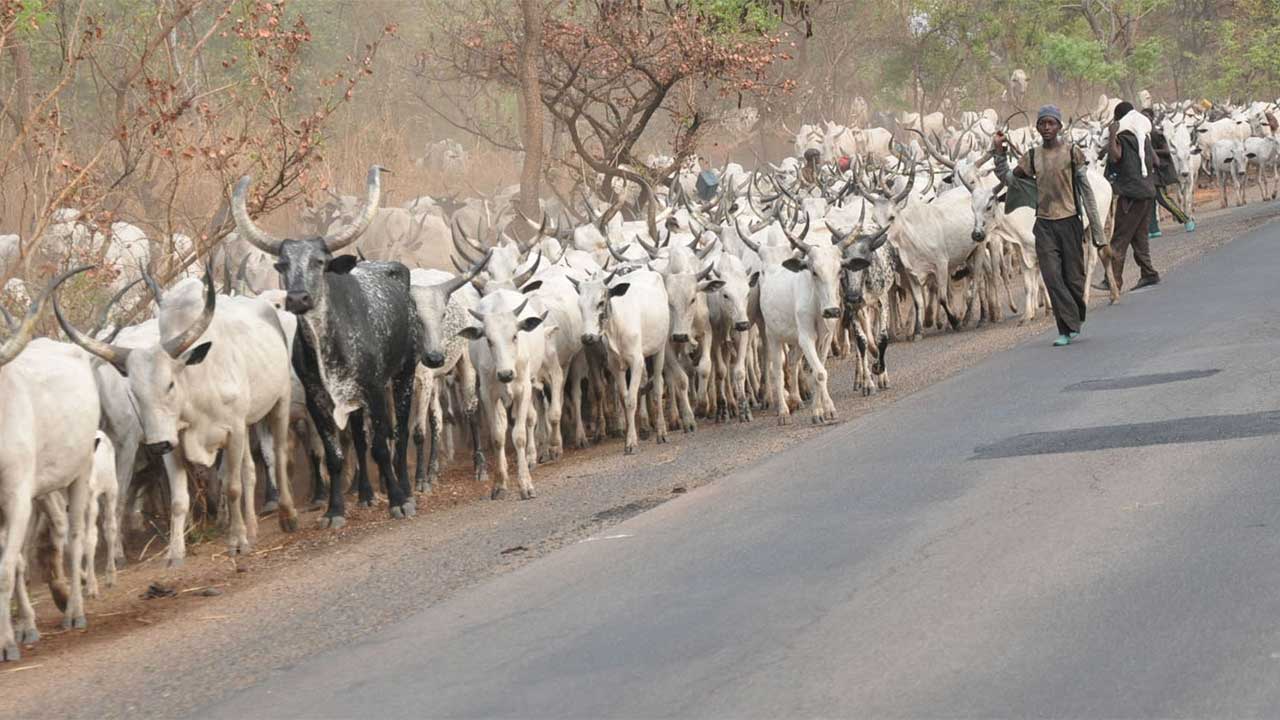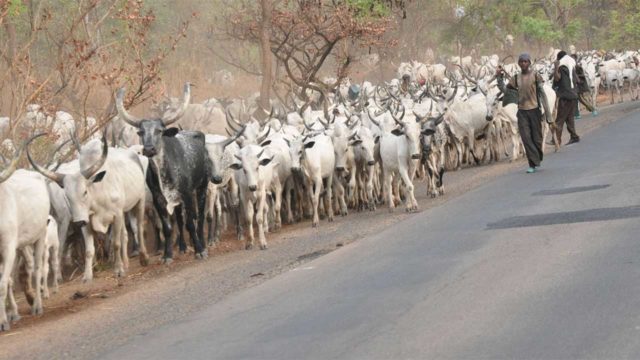 THERE are inherent conflicts between sedentary farmers and itinerant herdsmen because of their competing needs for water and ever diminishing arable land and pastures. With population growth and increasing urbanisation steadily encroaching on available land, the competition for land between them continually intensifies; increasing the possibility of their periodic clashes. Unfortunately, a new dimension has crept into this understandable rivalry between farmers and herdsmen. Their clashes took a macabre twist: attacks by herdsmen on farmers became too frequent, superfluously violent and extremely deadly.
THERE are inherent conflicts between sedentary farmers and itinerant herdsmen because of their competing needs for water and ever diminishing arable land and pastures. With population growth and increasing urbanisation steadily encroaching on available land, the competition for land between them continually intensifies; increasing the possibility of their periodic clashes. Unfortunately, a new dimension has crept into this understandable rivalry between farmers and herdsmen. Their clashes took a macabre twist: attacks by herdsmen on farmers became too frequent, superfluously violent and extremely deadly.
Herdsmen, armed with machine guns and high-powered assault rifles, and a new found audacity, took to the mass-murder of the innocent in farming communities in central and southern Nigeria. And their attacks became well planned and coordinated, evincing strategies and dexterity beyond the scope of mere cattle-herders. In what is repulsively reminiscent of ethnic cleansing, they attack mostly Christian and non-Hausa/Fulani villages in central and southern Nigeria, maiming and killing defenseless men, women and children; raping women, torching homes and destroying entire villages. Ostensibly, the object of these murderous rampages is to secure grazing space and routes. However, the unbridled murderousness of the attacks, and the herdsmen’s penchant for destroying entire villages, displacing their entire inhabitants, occupying the villages and renaming them betrayed an expansionist agenda.
The belief in some quarters is that President Buhari’s Fulani origin and expressed Islamic leaning and sentiments may have played a part in encouraging the herders to embark on what is interpreted as Fulani expansionist agenda through these attacks. The herdsmen are the foot soldiers of the Miyetti Allah Cattle Breeders Association of Nigeria, the umbrella association of wealthy and powerful cattle owners, and its expansionist policies. The average herdsmen lack the wherewithal to acquire the weaponry in their possession. Invariably, they are armed and sent on their blood-curdling missions by their masters in the Miyetti Allah Cattle Breeders Association of Nigeria.
Not surprisingly, as the number of the dead, raped, maimed and bereaved; burnt-down villages; and displaced persons from the herdsmen’s murderous attacks mounted, the Buhari administration either did nothing or prevaricated. It refused to protect the farming communities targeted by the herdsmen and rein-in the herdsmen or prosecute them and their identified sponsors.
There are palpable evidence that the Nigerian security agencies, at times, encouraged, and even, aided herdsmen attacks on farming villages. In the first eight to nine months of the year 2018, herdsmen killed more than 2, 075 persons, burnt down 2, 850 houses and displaced more than 104, 300 individuals. Then, in the last quarter of 2018, there was a lull in their murderous spree in central and southern Nigeria. That lull is ominous; it demands an explanation. The sociopathic, mass-murderers could not have become repentant, and thus, on their own, resolved to end the butchery of the innocent and the forceful takeover of other people’s land. Secondly, the security agencies did not, all at once, become proficient in their work, and can therefore protect the targeted farming communities, or effectively monitor the herdsmen, and nip their attacks in the bud. And, it is not that the Buhari administration had a change of heart, and determined to protect lives and property in these farming communities that were, for long, left at the mercy of Miyetti Allah armed terrorists.
The lull is explainable by the nearness of the February 19, 2019 presidential election. The negative publicity that attended the murderous lunacy of the herdsmen was not helping the prospects of President Buhari’s re-election.
The killings by the herdsmen outraged Nigerians, and impugned the Buhari administration’s commitment to one of the central constitutional responsibilities of the Federal Government: the protection of lives and property.
They punctured its carefully cultivated aura of impartiality – as encapsulated in the president’s inaugural statement – “I belong to everybody and I belong to nobody”. They lent credence to the president’s ingrained tribalism and sentimental predilection for Fulani expansionism. To burnish the president’s image and enhance his re-electability, there had to be a respite in the herdsmen murderous attacks.
Buhari is an avowed Islamic fundamentalist. He is an unflinching proponent of the Sharia penal code in Northern Nigeria, and, even, across the entire country. Although he did not openly declare his support for the Fulani expansionist crusade in central and southern Nigeria, his actions and inactions evinced his support.
His re-election in the February 2019 presidential election will in addition to the numerous woes it will visit on Nigeria, provide the enabling environment for the second phase of Fulani expansionism, which will profoundly rock the fragile peace of our multi-ethnic country.
*Mr. Ezukanma, a public affairs commentator, wrote from Lagos.
Source: Vanguard NG







